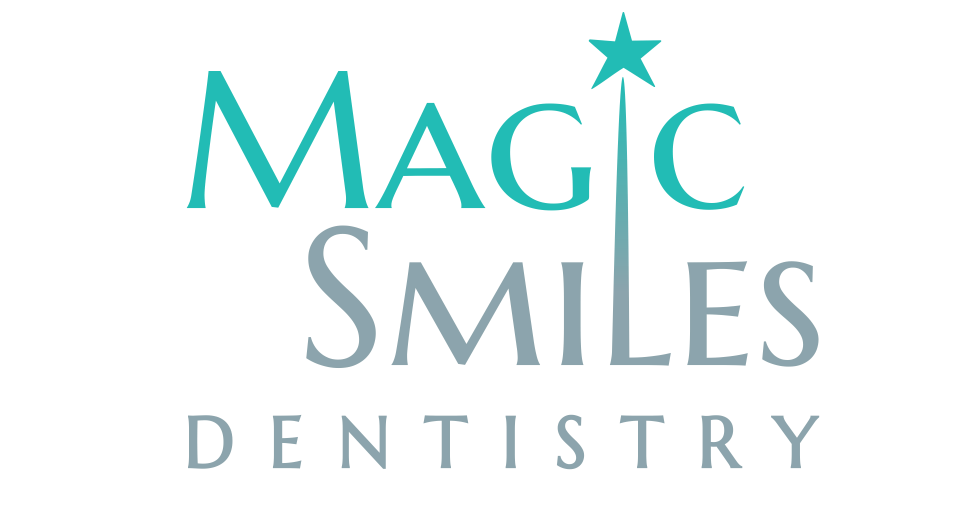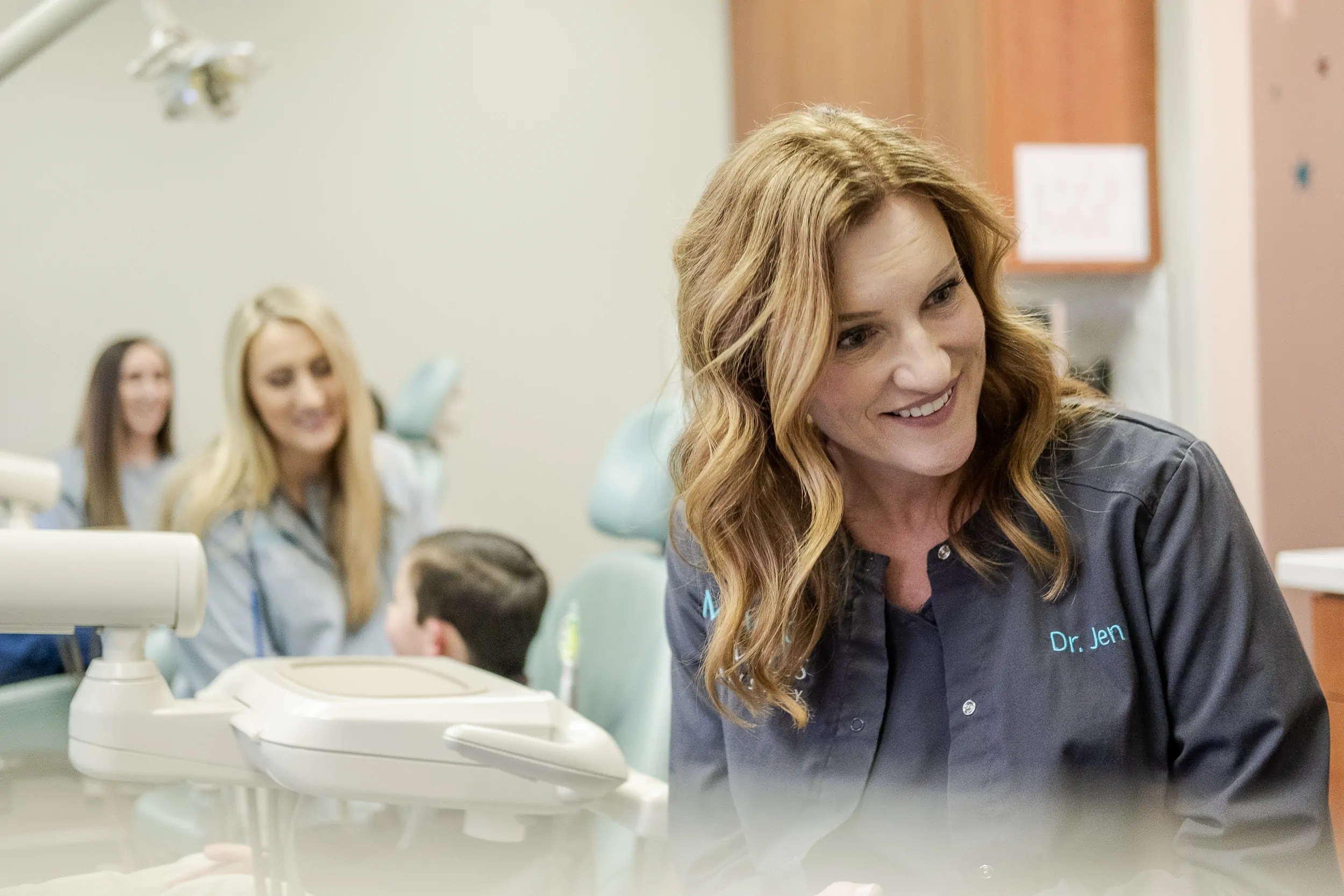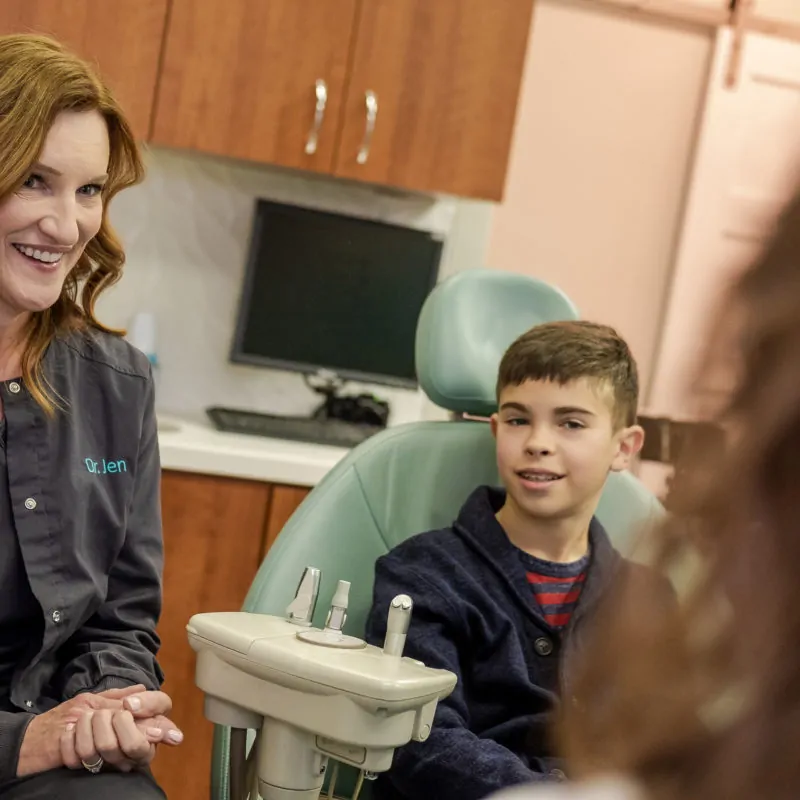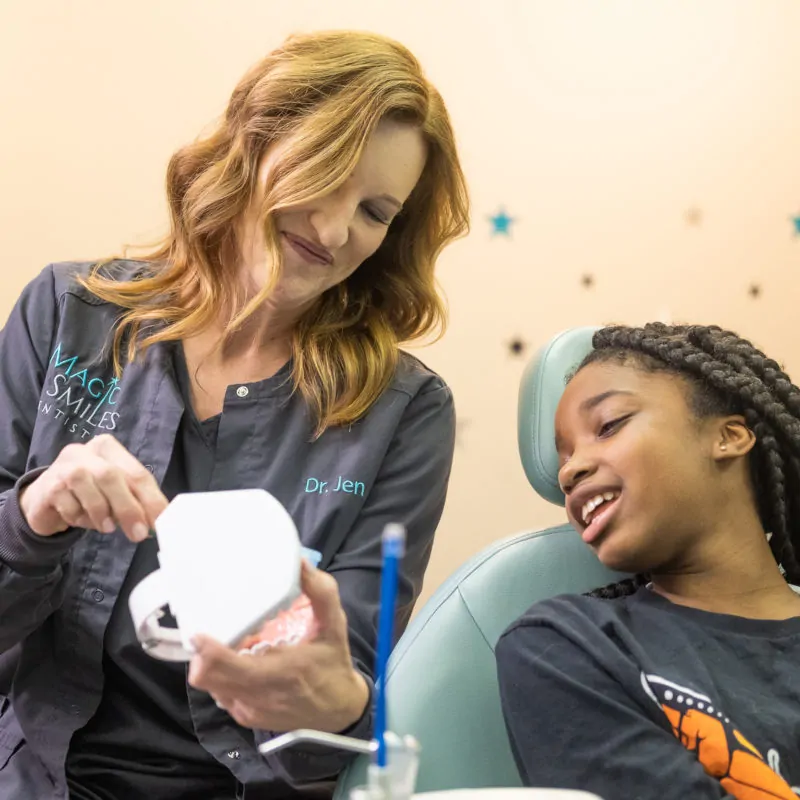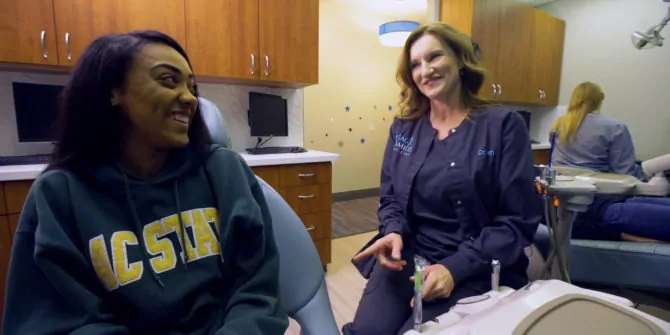Common Dental Questions
At Magic Smiles, we want you to know that you can ask us absolutely anything! You can also find some of the most common questions that parents have for us, as well as answers straight from Dr. Jen.
At Magic Smiles, we want to help children build healthy dental habits for life. Many parents tend to have questions about these topics:
Common Dental Questions
Whether you want to know how a kids’ dentist is different from a regular dentist, or how to handle a child’s toothache, we cover all that and more! We want to support you with all the information you need to help your child develop healthy dental habits for life.
Questions About Cavities
Cavities are a hot topic for most of our parents. Just ten years ago, cavities were simply a fact of life. But with today’s research and new, easy-to-follow professional advice, it’s actually possible for almost every child to grow up cavity-free.
Insurance Questions
We understand that dental insurance can be confusing for many of our patients. So we will work with you to understand and maximize your dental benefits, as well as submit insurance claims on your behalf (for most insurance providers).
Common Questions
When should my child visit a dentist for the first time?
Let the first tooth, which will surface between six and twelve months, remind you that it’s time to see your pediatric or general dentist. Though this may seem early, 40% of toddlers between two and three have some inflammation of the gums and/or cavities. Be sure to get advice on tooth cleaning, pacifiers, fluoride and preventing tooth injuries for young walkers.
Why are the primary teeth so important?
Primary teeth, or baby-teeth, are important for proper chewing and eating, as well as providing space for the permanent teeth and guiding them into the correct position, thus permitting normal development of the jaw bones and muscles.
Primary teeth also affect the development of speech and add to an attractive appearance. While the front 4 teeth last until 6-7 years of age, the back teeth (cuspids and molars) aren’t replaced until ages 10-13.
Is sensitivity to hot/cold common in children?
Sensitivity is common and can be symptomatic of anything from a harmless sinus headache to more serious problems such as bruxism (teeth grinding), cavities, loose fillings, or receding gums.
Sensitivity can also be magnified by tiny cracks beneath the outer enamel created from chewing on hard objects. Dental treatments sometimes inflame the pulp or nerves inside the teeth making them temporarily sensitive.
If your child complains of momentary pain caused by hot or cold elements, consider all possible causes and consult your pediatric or general dentist. Fleeting sensations are rarely grounds for worry. But if these pains tend to linger, see your dentist soon for an examination.
Should I be concerned if my child grinds his/her teeth at night?
Parents are often concerned about the night-time grinding of teeth, called Bruxism. Most cases of pediatric bruxism do not require any treatment. If excessive wear of the teeth is present, then a mouth guard may be used at night. But beware – use of a mouth guard may interfere with the growth of the jaws and your child could choke if it becomes dislodged during sleep.
The good news is, most children will outgrow Bruxism as they grow older. Most children will stop grinding their teeth between ages 9 and 12. If you suspect bruxism, discuss your concerns with your pediatrician or pediatric dentist.
Is there anything that can be done to make sure my child’s teeth come in straight?
As your pediatric or general dentist monitors your child’s development, he or she can teach your child to avoid oral habits that encourage orthodontic problems. Your dentist also can identify malocclusion (abnormal dental alignment) right away and actively intervene to guide the teeth as they emerge in the mouth. Many times, early orthodontic treatment can prevent more extensive treatment later. Though your child may need braces, new preventive techniques can minimize time needed to wear them.
What can I do for a toothache?
Clean the affected area of the mouth thoroughly. Rinse the mouth vigorously with warm water or use dental floss to dislodge impacted food or debris. DO NOT place aspirin on the gum or on the aching tooth. If the face is swollen, apply a cold compress. Take your child to a dentist.
Questions About Cavities
Can children grow up cavity free?
Ten years ago, we might have said no. But today’s research and new, easy-to-follow professional advice indeed make it possible for almost every child to grow up cavity-free.
How can I help my child prevent cavities?
The American Academy of Pediatric Dentistry advises:
- Brush with a fluoride toothpaste twice a day.
- Floss children’s teeth once a day until they are able to do it themselves – around age 7 or 8.
- Visit your pediatric or general dentist regularly.
- Get enough fluoride through drinking water, fluoride products and, when indicated, through fluoride supplements.
- Have sealants applied to the chewing surfaces of permanent back teeth or molars soon after they come in.
- Snack moderately – no more than twice a day.
Will a good diet help prevent cavities?
Though a balanced diet is certainly important in preventing cavities, experts agree that cavities are not only the result of what children eat, but also, how often they eat. Frequent snacking without brushing leaves food on the teeth longer and fosters tooth decay.
If our water is fluoridated, should my child also use a fluoride toothpaste?
Absolutely. It was once believed that dietary fluoride (fluoride taken into the body through food and water) was more effective than topical fluoride (fluoride applied to the teeth with toothpaste, mouth rinses or in-office fluoride treatments). Both sources of fluoride are equally influential in preventing tooth decay. Toothpaste provides daily fluoride boosts that contribute to keeping your child’s teeth cavity-free.
What are dental sealants?
Dental sealants protect the chewing surfaces of back teeth where most cavities in children are found. Made of clear or shaded BPA free plastic, sealants are painted onto the tiny grooves and depressions in the molars. By “sealing out” food and plaque, sealants reduce the risk of decay. They are quickly and painlessly applied to baby teeth as well as permanent teeth that, in the dentist’s opinion, are likely to have decay on the biting surface. Sealants must be checked regularly and replaced when necessary. Generally, they will last for several years.
When should my child start brushing his/her teeth?
Brushing should actually begin before children are capable of doing it themselves. A wet cloth or gauze effectively cleans gums and removes plaque after nursing and establishes a good habit early on. Begin brushing gently with a soft bristle brush when the first tooth comes in and begin flossing when most of the primary teeth are in.
At six or seven, children can brush on their own, with careful supervision. And by eight or nine, they can floss on their own too.
The American Academy of Pediatric Dentistry says “a good rule of thumb is this…When children are accomplished enough in caring for their own needs that they can get up, bathe and dress themselves and comb their hair without your help – then they are ready to accept full responsibility for their mouth-cleaning program!”
Is one toothpaste better than another?
Many toothpastes, and/or tooth polishes, can damage young smiles. They contain harsh abrasives that can wear away young tooth enamel. When looking for a toothpaste for your child make sure to pick one that is recommended by the American Dental Association. These toothpastes have undergone testing to insure they are safe to use.
Remember, children should spit out toothpaste after brushing to avoid getting too much fluoride. If too much fluoride is ingested, a condition known as fluorosis can occur. If your child is too young or unable to spit out toothpaste, consider providing them with a fluoride free toothpaste, using no toothpaste, or using only a “pea size” amount of toothpaste.
Is it possible to get too much fluoride?
Yes. If too much fluoride is ingested, a condition known as fluorosis can occur. Children should spit out toothpaste after brushing to avoid getting too much fluoride. If your child is too young or unable to spit out toothpaste, consider providing them with a fluoride free toothpaste, using no toothpaste, or using only a “pea size” portion of toothpaste.
The small percentage of children who incur severe dental fluorosis typically consume over-fluoridated water on a regular basis or eat their toothpaste.
Insurance Coverage Questions
What do my dental benefits cover?
Dental benefits differ greatly from traditional medical health insurance benefits and can vary quite a bit from plan to plan. When dental plans first appeared in the early 1970’s, most plans had a yearly maximum of $1000.00 per person. Today most plans still have an annual maximum of $1000.00 per person. Yet dental premiums have risen due to time and the inflation rate. Your dental premiums have increased, but your benefits have not, therefore, dental coverage is never a pay-all, it is only an aid.
What does my dental plan mean by “usual, customary and reasonable?”
You may receive a notification from your Dental Plan Provider stating that dental fees are higher than “usual, customary and reasonable”. Dental Plan Providers never reveal how they determine “usual, customary, & reasonable” (UCR) fees. A survey done in the state of Washington found at least eight different UCR fees scheduled for one zip code in the Seattle area. They are, at least, determined by taking some percentage of an average fee for a particular procedure in a geographic area. An average has been defined as “the worst of the best” or “the best of the worst”. We do not provide average dentistry nor do we charge below average fees.
What should I expect from my dental plan coverage?
Many plans tell their patients that they will be covered up to 80% or up to 100%, but do not clearly specify plan fee schedule allowances, annual maximums, or limitations. It is more realistic to expect dental plans to cover 25% to 50% of major services. Remember, the amount a plan pays is determined by how much you or your employer paid for the plan. You get back only what you or your employer puts in, less the profits of the Dental Plan Provider.
If a procedure is not covered by my insurance is it not necessary?
Many routine dental services are not covered by Dental Plan Providers. This does not mean that the treatment recommended is not necessary or appropriate; just not covered.

